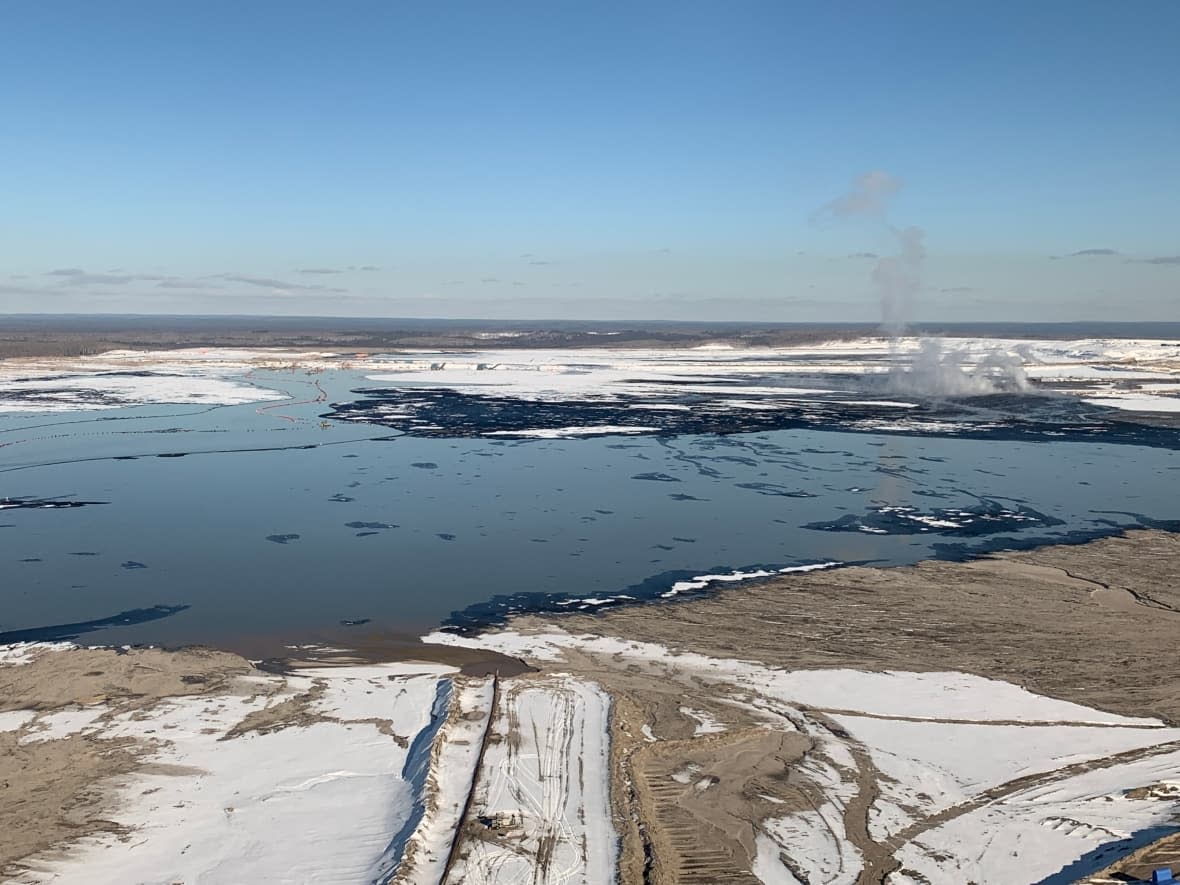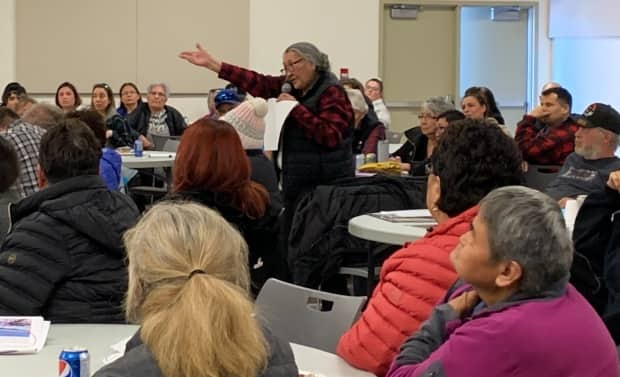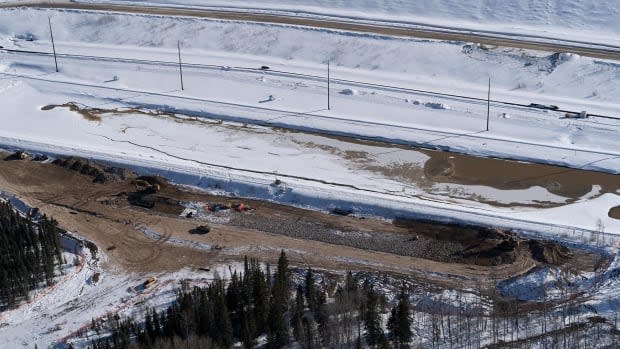Northern Alberta residents demand answers from Imperial Oil after toxic leak from oilsands project

There were sharp words and fiery exchanges this week at a town hall meeting between Imperial Oil and residents of Fort Chipewyan, Alta.
It was the first time the company met with residents of the community on the western shore of Lake Athabasca since wastewater seepage was discovered from tailings ponds at Imperial Oil Ltd.'s Kearl Lake oilsands site near Fort McMurray. Fort Chipewyan is downstream from the tailings ponds.
The seepage was first reported in May 2022, and as of Thursday, Imperial Oil spokesperson Lisa Schmidt told CBC News in an emailed statement that there is no "additional information to provide on volume."
Residents say they only learned there had been seepage in February — nine months after the fact — in an environmental protection order from the Alberta Energy Regulator, after another release of 5.3 million litres of industrial wastewater from the site containing arsenic, dissolved iron and sulphates overflowed from a catchment pond meant to capture escaped tailings. That amount is more than enough to fill two Olympic-sized swimming pools.

Jamie Long, Imperial Oil's vice-president of mining, faced many tough questions from angry residents who attended Wednesday's meeting and demanded answers about why the community wasn't told about the leaks.
"We regret the incidents and we're making every effort to ensure we prevent them from happening again," Long said.
Concerns about water quality, health impacts
Long fielded questions about how it would take to fix the leaks, whether the company has a mandate to take actions based on community feedback and what type of wildlife monitoring is being done. But the majority of concerns centred around water quality and possible health impacts.
Jean L'Hommecourt has a cabin in Fort McKay approximately 13 kilometres from the spill.
"I'm concerned about the moose I harvested, which is in my freezer right now, which I've shared with many people," L'Hommecourt told Long. "Now I have this fear of the long-term health effects that we are going to face."
WATCH | First Nation calls for action after discovery of Alberta tailings pond leak:
"All the data we do have is, there is no impact to fish. There's been no impact to wildlife. The water quality of the Firebag River hasn't changed," Long responded.
However, federal investigators have ruled the wastewater is harmful to animals and issued a Fisheries Act directive to Imperial Oil to contain the seepage and prevent it from entering fish-bearing water bodies.
L'Hommecourt told CBC News that the meeting did little to make her feel better about the seepage.
"It kinda upset me a little more and it resurfaced all the emotions," she said.
"I have many unanswered questions. The biggest is, what are the plans moving forward and how are they going to address tailings to not affect our water anymore?"

'See if they drink that water'
Archie Cardinal, who lives off the land and raises his three sons, aged 13, 15 and 17, in Fort Chipewyan, said it hurt that the community was not initially told about the leak.
"Me and my wife were sitting there talking and it hurt us both because of our children," he said. "It's a hard thing. A lot of people have kids in this town, drinking the water and being raised here, a lot of people are actually scared to live here now."
LISTEN | Outrage over silence on tailings pond leaks in northern Alberta:
Though federal officials have talked about the need for more working groups to monitor and communicate about leaks, Cardinal said that does little to ease his mind.
"They can say that," he said. "Who knows what they're doing?"
While the company has said there is no impact on water and the Alberta government said water test results show no contamination of drinking water, Cardinal is making this offer to both entities.
"Let's bring them down here. Let's make a hole [in the lake] and see if they drink that water," he said.

Investigation ongoing, company says
Imperial Oil refused CBC News's request to speak with Long after the meeting and instead provided an interview with spokesperson Christine Randall.
"We're committed to working with the communities," Randall said. "We're committed to getting back to people and helping to start rebuild that trust that was broken from the communication of this incident."
She did not respond to questions about what the cause of the overflow was, saying the investigation is still ongoing.
When asked why the investigation was taking so long, Randall said "it is a priority" for the company.
According to Long, Imperial Oil plans to return to Fort Chipewyan in April for another meeting with residents.


